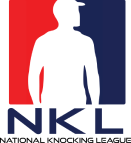Ad 00:06
This episode is brought to you by D2DU, the #1 online sales training platform and the door-to-door and direct sales industry. With over 200 interactive and industry specific videos, learn from the top 1% in the industry how to maximize sales in record time. Indepth training that covers all the skills you need to succeed in your industry. Go to https://d2du.thed2dexperts.com/ to enroll today, if you are in solar roofing alarms or pest control, then d to d u is definitely for you go to https://d2du.thed2dexperts.com/to enroll today.
Sam Taggart 00:47
This is Sam Taggart, the D2D podcast and I’m here with Rex Schade and Jonathan Gibbs, one of the awesome companies like, you don’t find many solar roofing companies that have been around for nine years these guys are kind of we’ll call it dinosaurs in the solar space or been featured in Forbes twice, you know Inc 500 for six years in a row, top 500 contractors. You know they’re in the solar insulation roofing business they’ve done other ventures prior to this one, awesome entrepreneurs. So super excited to have you guys on the show. Thanks, man. Good to be here. dork on you’re speaking that’s a big deal. Yeah, excited.
Jonathan Gibbs 01:27
I’m super excited. First Year you’ve been first year, first year I’ve been I’ve heard a lot of great stuff about it. Your your speaker lineup is amazing. So I’m really humbled to be included in that. And sounds like we’re going to talk about just exit strategies and how to position a home improvement company of any kind for an outside investor or possible exit,
Sam Taggart 01:50
which is huge, because I think a lot of people they start a solar company and start a roofing company, they start a window company or whatever. And they’re like, Oh, yeah, one day I’m gonna get bought, I have all this equity, and then they go 10 years. And then they’re like, wait, I’m still just doing the same thing collected my $100,000 check, and I still am broke. And I you know, I mean, there’s no plan there. And they don’t know where to go with it at that point. And they’re like, man, I had my heyday five years ago. What is that? You know, I’m losing steam. I lost my sales team. So I’m excited to one on this podcast, we’re gonna dive into that a little bit, give people a teaser. But if you’re, you know, wanting to grow and scale your company, you’d be at D2DCon on January 8, and ninth, don’t miss it. Get your ticket today. So let’s let’s dive in. I want to go like 32nd backstory with you guys as best you can. I don’t like to go into the whole like, okay, I was born in Minnesota, and then all that. But let’s start with you, Rex, like, how’d you get into the entrepreneurial world business? Like, tell us a little quick story? Yeah,
Rex Schade 02:49
That was a great question. I mean, my dad owned a construction company. So I grew up in just a kind of entrepreneurial environment. And for about 18 to 25. I was in sales and marketing. And then at that point was really when my wife and I thought it was the right time to start our energy. So we did that did out of her house. Real simple, just use our garage as a warehouse. And we actually didn’t start with solar. So I’m just really simple, just insulation, ventilation, really easy to to sell install products. So they were, you know, one day to day installs that we could do multiple jobs. And really just combining an industry growing up and construction as familiar with, which is the sales and marketing background I gained in a very short period of time, I was 25, I started smart energy with my wife. And then few months later, in talking with Jonathan, we were looking at you know, together could be grow a company that would be 10 times bigger than what we wouldn’t be able to do on our own. And we modeled that out and partnered up and the rest is history, as I say. So that’s cool, almost almost nine years ago now.
Sam Taggart 03:46
And one of the weird parts is you’ve now migrated a lot more operational even though you’re kind of cut your teeth in sales has that been a easy you like kind of being more over ops and installs and that kind of stuff? Or is it like man, I miss like the grind and like our
Rex Schade 04:04
Times miss the grind, although I do get kind of the the sales fix on a regular basis. And I spent a lot of time with, with our project, big department. And that’s a very sales centric department, knowing the importance of being able to communicate with customers save deals, could feel that might be you know, falling apart, be able to reassure those customers and so there’s we only take a sales approach to our really our whole company, but specifically in our operations. And so I get some of that Bob on the phone talk with customers have to save a deal things like that, like gives you the little you have the same rush but so it actually that’s one things I really enjoyed is that, you know, I’ve done, you know, sales or did sales for a long time. I did, I did a lot of presenting. So I did you know, I’ve done several 1000 presentations in front of groups of 20 to 100 people in in a previous company and so being able to, you know, bring that into the operations part was really, you know, really enjoyable, where Normally you especially construction would be kind of archaic and clunky. And just, you know, the instructions. Yeah, you put that twist on it will last several years, actually at all.
Sam Taggart 05:10
That’s awesome. And then how did you, I guess, Jonathan, this is, and this is the topic we’re going to kind of dive into a little bit is, is, you guys are 5050 partners. You know, a lot of people want to start a business with their buddy, you kind of already had something going. And it’s like, really do I want to give away half like when I’ve already got this thing moving? You had already had a business background? You know, how did you guys How did this Connect? And how did you guys negotiate that initial like, Alright, let’s just cut it down the middle and call it good. Like, I feel like, yeah, that’s the normal go to, but I don’t feel like there’s a lot of like, math, you know, and it’s hindsight is 2020, you look back nine years ago, I’m curious if it’s like, man, we were idiots, or we did it right. Like, you know, I mean, that that’s what I want to talk about today. So if you’re listening, it’s like, how do you navigate a 5050 relationship, or even a 7030, and bring partners on and not be a solopreneur, but start to scale, faster investors, partners, etc? So that’s kind of the main thread. So give us kind of the background?
Jonathan Gibbs 06:09
Yeah, I mean, was a great book called I mean, it’s the richest man in Babylon. And in the first few chapters are about partnerships. And partnerships are a great way to create, like, massive acceleration, right. It’s the, it’s the best way to accelerate and grow quickly is through the right partnership. But, you know, partnerships, most partnerships also. And so it can also be, you know, the hardest part about businesses, you know, partnering with someone, because then it’s not all your way. Right? Yeah, it’s agreement. And I would really recommend for people that are, you know, looking at Partnering for the first time is, take a lot of time to make that decision. Don’t have your first partnership with someone that you don’t know very well. I mean, Rex and I had known each other for seven, seven and a half years, we had worked together for seven half years. Before partnering up on in this company, we so we knew each other’s strengths and weaknesses, we had a lot of trust, and the trust is really, really important. In a partnership, I know a lot of examples of people who start businesses, and they’re successful. And then someday, someone, there’s 100, grand, the bank Councilman just takes it and and their partner, ask them, Why did you take it? And they say, Well, I thought you would take it, you know, and, and that’s, I mean, that’s a common thread, if it doesn’t happen year one, or year two, or year three, I mean, it can happen down the road. So I think trust is, is really, really important. There’s a term that we use really early on, and, and I sort of use it now to as a as a point of reference for all potential partnerships, which is, you know, just equally yoked, you know, equally yoked is a term describing, you know, two oxen working side by side with each other, you know, one’s not in front, one sign a weed, they have the same harness, they have the same responsibility. But those two animals pulling together, can pull five times or 10 times more workload pulling together in services. Just one horse.
Sam Taggart 08:11
Yeah, one, just one on one person.
Jonathan Gibbs 08:13
Yeah. You know, and, and we see that it’s true. And like so many examples, I think, for us, you know, the decision req says it really well, which is, if one plus one was going to be three or greater, it was going to make a lot of sense for us because the relationship was there. And the trust was there. And we really believed that one plus one was going to equal 10 or more. And so from that standpoint, and that’s really definitely what’s happened, certainly what’s happening. I mean, going into 2021, one plus one is going to look like 100 times what either one of us were going to do now, nine years later. And so, you know, for us, it was a really good decision. But I would tell people, you know, approach it like you would, you know, marriage, I mean, approach it like you would a lifetime. A lifetime decision. I mean, if if the business works, and you’re successful, it quite possibly could be a lifetime decision.
Sam Taggart 09:08
Yeah. Yeah. I mean, I think what’s sad is some people go into business, not thinking it’s going to work. And it’s like, well, that’s, that’s kind of the problem is you’re going in this with the end of failure. And, like going into this, obviously, like, protective, but at the same time, it’s okay, like, we’re planning on being like buddies until we’re 50. And like, singing in, like, on our yachts, like hanging out, you know, like, that’s like how I look at any kind of partnership. It’s like somebody that I want to be going to Mexico with because we like each other. Not because like, Hey, man, did you get your work done like that relationship.
Rex Schade 09:45
If you don’t have enoigh of a friendship, to want to spend time with each other outside of the work, and it’s probably gonna be very difficult. It’s certainly not nearly as enjoyable because there’s times where the money isn’t going to be what you want it to be or though you have all kinds of problems in business that you’re always solving. But if Not able to step back and go actually just enjoy your life and have fun with that person or people, then that is always just a job all the time. And it can cost us a lot of friction, you know, things are not going the right way, and it gets harder and harder to really, you know, double down with each other and the mission that you have for each other, if, if that just becomes harder to do, as time goes on, if there’s not a foundation of being able to spend time with each other, go on vacations together, you know, have real conversations outside of just the financials and strategy and things like that, because having a healthy balance, because really, really boring. that’s helped us you know, with our wives, we’ve taken trips, sometimes you take trips solo, because we need a break from the company. And sure enough, you’re not invited on this one. But But you know, for the most part, you know, we’ve done a lot of really personal things together that you that really just strengthen the business part of it, and carry it forward.
Jonathan Gibbs 10:54
Yeah. Yeah, she said something is really important. Like, you have to have enough confidence in the relationship to also not spend time together. Yeah, I mean, in a nine year relationship, like, if you look at a nine year marriage, it’s just not the same every year, right? Like the freshness of your friendship, or the quality of your friendship is not going to be the same like through I mean, in nine years, like, Rex has had three kids. And, you know, like, I went through a divorce, and there were knee surgeries. And just, it’s like, you go through heavy stuff together. You know, there’s good seasons, where you’re making money, there are seasons where you’re losing money, or you’re fighting, you know, the biggest storm in your area in 100 years, and you’re fighting COVID, you’re finding things and so it’s just not all easy. And you have to have that relationship where you enjoy spending time together. And then you have to have that trust that when you’re not willing or able to spend that time together, that things are still going to be okay.
Sam Taggart 11:50
Yeah. How do you how do you handle that when, you know, let’s say you’re going through knee surgery, or you’re going through divorce? And it’s like, dude, I’m not going to be my 100% right now, because obviously, I can’t, right? Yeah, um, obviously, there’s times where one feels like they’re pulling more than the other. And I think that’s where any partnership goes sour fast is they, they’re like, I’m doing all the work and you’re getting out, you’re riding my coattails. And you’re, you know, I’ve had that feeling sometimes it’s just people I work with, it’s like, man, no, like, I’m a frickin a player, like you’re a B player right now. How do you navigate that?
Rex Schade 12:29
Well, good communication is always really, really important. You know, a lot of it is, you know, some of those those thoughts start, they start really slow, and they build resentment or the investor over time. And a lot of it comes from a lack of communication, where the, you know, the partner may not have God said, Hey, like, this is the season, I’m going through, here’s how I’m feeling. And here’s where I’m at, and is actually having that dialogue, it does not have then, you know, from my perspective, I can look like, Just what are you doing, and how come you’re not doing whatever in my head, I think you should be doing and so a lot of it can be totally mitigated by just communicating with just the bandwidth that people have this season that they’re in, is really important, from a partnerships, perspective, as well, you know, understanding that you’re going to go through seasons, where you’re going to need to carry more than the other person, maybe that’s just because it’s your department, and your department needs more attention or need more help, or needs to be rebuild, and, you know, the other department might be going great. So I was like, Hey, I’m gonna keep doing me, yeah, you’re gonna need to step it up, and, you know, do your part. And so that might trigger and require, you know, extra effort extra hours, through the season like that, or it might be something personal, that he’s the, you know, the person just needs more time or isn’t able to put in as much as as the other one. So being able to beat a situation where you’re okay with doing more for still, you know, whatever the, you know, the partnership structure is, as far as, you know, money distributions, things like that.
Sam Taggart 13:49
So, this is a, this is a follow up question that you’re obviously installed your sales, obviously, there’s like a battle between, you know, your sales are low, and we’re sitting here just chomping at the bit hungry, ready to go. And then all of a sudden, you ramp up sell, there’s like, wait, slow down, stop selling, you know, and there’s this, like, ups and downs. And I feel like a lot of these people listening to this are sales entrepreneurs, like you, obviously have a background in sales. So you kind of see that side of the world, but how do you value? I think this is where people get skewed as they, you know, sales is worth X percent. And if without me, I’m gonna, you know, I’m sure you’ve had these kind of conversations, like, how do you navigate that?
Rex Schade 14:29
Yeah, it’s really simple. I tell my whole company, I said, you know, you’re here because you’re really good at your job. That’s why we hired you, regardless of what department it is, it can be anywhere from customer service to your top salesperson or executive. No, you’re here, because you’re good at your job, what you’re doing. You’re also here because someone else is good at their job. I mean, this picture that without every single without every single spoke, it doesn’t work, you can make all the sales you want. If you don’t have a project management team, none of those jobs are gonna go through permitting, you can have the best project managers if you don’t have good install. You can have all these cleared, ready to go deals and know when to install them doesn’t matter. And you can get all of that done. But if you don’t have an accounting department, and to process payroll, no one’s getting paid so that no one’s showing up to work, right. And so you can pay this really clear picture that you are good at your job. That’s why you’re here. But you’re also here because someone else is good at their job. And it takes every one for it to work. So that’s how I, that’s how I keep everyone at bay. Because it’s a, it literally is a constant thing.
Jonathan Gibbs 15:27
Yeah, well, um, especially if you look at solar, right, because the marketplace right now is it’s an early marketplace. So it’s an immature marketplace. So we have not experienced the full price compression of what the real retail price of solar is, and the marketplace is rewarding sales reps, but just really extreme, like in the stratosphere of rewards, right, where a solar sales rep can can make, you know, $10,000 Commission on a 90 minute sale, and the company who’s installing that might only make 15 $100. Right, and then they’re they’re warranting that for 25 years, but that is the market. And that is the market across the board. And so you have to, you can’t, you can’t fight the market. You know, I feel like an experience, you know, really good growth, you have to, you have to adapt, you have to be flexible, you have to recognize where the market is, and where the markets going. And right now, that’s where people are being rewarded. And so you have to have compensation that reflects that in the marketplace, how we balance it out, and we try to reward operations really well. We also let people know, hey, you know, everybody is eligible to government sales, like if you are attracted to that, and it’s the money and that’s what you want, like everybody is open for that. And we try to create paths for that. Solar, even really disciplined sales teams have about a 20 to 25% cancellation rate. And so that creates opportunities in operations to save deals. And so we split commissions and save deals and things like that. We give project managers and case managers opportunities to upsell deals, you know, 20 panels to 30 panels, or upsell a battery up sell an electric vehicle charger. So you can kind of get them involved in the commission structure, but also just being really transparent and explaining Hey, this is how the market is rewarding people. If you want to be rewarded this way, let’s let’s start creating a career path for you that way, I mean, because we’re in a really unique situation right now and you can’t building against it, like building against the marketplace. You know, business is hard enough. Yeah, you’re trying to do something in the exact opposite direction that the marketplace is, is demanding is just doesn’t make sense.
Sam Taggart 17:48
Yeah. I like that. So I think on that, like, obviously, this is like a stormy waters in business. It’s like never a calm. I feel like, you know, I’ve never seen a business where the everybody’s like, yeah, we’re just humming along. And I found that this is kind of a and you don’t need to answer like specific numbers. This is shifting gears a little bit. One of the problems I run into when consulting companies and even in our own company is being owners. How do you pay yourself? And how did you guys say like, Oh, I’m gonna get this much. And I’m gonna get this much a month, and we’re gonna get this much a year and district, you know, like, Is there a formula that you guys have found to, you know, calculate like, Oh, this is a good healthy pay. I need to be specific on numbers, obviously. But like, well, when you start business, you pay yourself last.
Jonathan Gibbs 18:44
I mean, so the formulas you pay yourself last, I mean, when you start a new business, as a business owner, you’re almost always investing in your people, or your resources first. I mean, we didn’t pay. We didn’t pay me for the first year. Like I I took nothing from the business for the first 12 months. Rex and you mean paid themselves very modestly, for the first year and a half. I mean, we’ve been in business for nine years. Sales Reps have earned us every year. I mean, right now, there are dozens and dozens of sales reps out earning us because the market compensation we just talked about, and that’s okay. And then you balance that out as the company is healthy. Rex is kind of like our big advocate on distribution. pushing forward, like when it doesn’t seem like you could take a distribution. Like it’s like insisting for the distribution and then and then we sort of go to work to make it to make it work.
Sam Taggart 19:35
Yeah, cuz cuz I think this is why I think the entrepreneur feels like almost guilty of like, paying themselves.
Rex Schade 19:42
I mean, that’s like us it’s, you’re never gonna have enough it’s like getting married like it’s never the right times at the right time to get married at the right time to have a kid. And but when that happens, and you just figured out he just your life and you know, in terms of the human being could turn out to be a really good thing. There’s never rarely just enough money where you’re wearing Feels great, they’re always a little bit of just like anxiety of like, I could use this and use it towards here, or what if I need a bigger buffer, like, all those thoughts or feelings are super real, and But eventually, if you don’t just do it, then then you’ll just keep waiting for forever. And in the whole point, of course, you know is to is to make money at what you’re doing and be rewarded for what you’re building. And so as a you need to make it a priority, you know, after the initial kind of startup phase to making sure that you are paying yourself and rewarding yourself for the company that you’re building. Because if you just keep waiting, you, you maybe wait forever, and then ended up with a really disappointing outcome.
Sam Taggart 20:38
Yeah.
Jonathan Gibbs 20:40
So I mean, I think it’s a balance, yeah, it’s a balance of, you know, stretching yourself and then making it work. Because reality is, you know, you take an example of a small business, and you really need an employee, and let’s say, it’s an expensive employee, you need a specialist, let’s say, it’s a six figure specialist, and you really don’t know how you’re gonna afford that person. So you squeeze the budget, and you, you hire that specialist, and then you you make it work, right. And so you can do that for yourself as well. You just can’t do that for yourself, maybe as often as you want.
Sam Taggart 21:13
That makes sense. So let’s talk about and this will kind of wrap up with this topic, which is kind of leading us into what you’re speaking at door to door con, which is getting an investor financing capital, you know, lines of credit or partners that you’re you know, what I mean? Like, what’s the, what’s the avenue found to be the best when it comes to having investors or raising capital? Or, like, what is your experience? I guess you could say,
Jonathan Gibbs 21:43
well, in a construction company, which, you know, I mean, obviously, you talk to a lot of construction companies, roofers, you know, Pest Control companies and solar companies, oftentimes, you know, our CFO has a huge background in construction has managed, you know, you know, billion dollar plus, you know, Home Improvement company, and, and he tells us, you find out what you made in a construction company, when you sell some or all of your company, or you close it down. And so you’ve got a lot of solar companies in the situation right now, where let’s just say an example, right? Let’s say they made $5 million last year, they pay taxes this year, on $5 million, but they probably paid themselves a few $100,000 each, and they’re thinking they’re going to take money out soon. But they’re not because they’re gonna have a million dollars more in equipment, they’re gonna have $3 million more in accounts receivable, their business is going to grow. And as long as your business is growing, your your cash flow risk is becoming more and more strained. And so there’s actually less typically available cash in a business that’s growing, and the faster you’re growing, the less cash is available, because you’re, there’s more operating capital required on a daily basis to sustain that growth. And so what happens is, if you were to shut down that company today, and then they have like $7 million in accounts receivable, and all these jobs coming in, and they’re not paying, you know, new marketing, you commissions, all these things, boom, all of a sudden, they’ve made eight or $9 million, right, but they don’t want to close their company down. So then if they take on an investor, that’s a way they can get paid, and they don’t have to sell all their company, the two most common structures out there in the market are through private equity. One is going to be a minority recapitalization, the other is going to be a majority recapitalization, the difference being in one scenario, you’re selling more than 50% of your company. And what happens all the time in this scenario, what we discovered for ourselves, you know, in 2018, we took a look at our business in 2018. We said, Okay, one of the fastest growing companies in North America, we for five years in a row, we’re not really paying ourselves a whole lot. And if and we’re making a lot of money, but running out of cash, and if we had more cash, we could grow. Yeah. And and we started even having to pick and choose the business that we want. We figured like, Okay, this marketplace, we can clear 35 cents a watt, this marketplace, we could clear 60 cents a watt, and it was like, we only had so much cash to deploy. And so we had to start picking and choosing where do we grow? What do we do,
Rex Schade 24:17
right? I mean, you’re spending money for for where you’re at now, where you’re going to be in three to six months, but you’re collecting money from where you’re at 90 days ago. And if you’re growing really fast into that, that gap becomes wider and wider of what your accounts receivable actually is to what you need to spend to keep on your on your growth rate. And so you can become cash restrained really quickly. And we certainly went through that a couple different times. And then you had to scale back marketing or fix things over here to make sure we can bridge that gap. While especially in the earlier years before we really had any kind of access to capital. You know, we started our company the same way everyone does just self funded. I mean, we you know, all the money that my wife and I had and then we mortgaged her house again and all those things. It was just the real traditional like went all in To get this company going, you need to three years of tax returns. And then in that the first three year mark is really the hardest to get through, because we’re self funding pretty much everything. And but once you once you make it past that point, then you can go to the bank, they don’t really take you seriously look at look at those financials and and then after that point, I’m getting access to capital, then we were able to not be so tight for those first three years was like, yeah, the books look great. But you know, again, we’re collecting AR from several months ago, and we’re growing month over month. And
Sam Taggart 25:31
it was just, yeah, it cost money to grow.
Jonathan Gibbs 25:35
Yeah, so lines of credit are a great simple way that people can take on capital, it’s there’s typically a 60 to 90 day process to securing a line of credit. And generally
Sam Taggart 25:44
after two or three years of financial, like the bank, yeah, I went to the bank. And I was like, Hey, can I get a line of credit? And they’re like, no, here’s 20 grand and like, I don’t need 20, Grand
25:54
20 grand, would tell
Jonathan Gibbs 25:56
most people probably don’t really want to take on money on their first couple years, money. Money is a catalyst. So you watch and like fast and furious at that nature. So like hits your tank, like it’s going to accelerate you. But you might not want to grow really fast yet, and it’s going to send you down the road, you’re going on faster. I know, for us, there’s been a tough of a couple times where we didn’t get the money that we wanted. And it forced us to get really lean. And we found areas that we were losing money and that we shouldn’t be losing money. And we found areas that we should be making more money. Because if you put nitrous on that path, it just means you lose a lot more money than you are like in Episode 101. Paul, like he throws a night just too early, right? And so yeah, man, right, he just, and that you see that a lot where someone wants to grow really fast. And so they go get a partner or they go get money. But the reality is, is they really haven’t become an expert in their field, yet, they really haven’t owned what they’re doing yet, they really don’t understand the true cost of being in business, right? There’s a true cost to being in your business. And until you know that money is not going to help you. So, you know, getting a an angel investor can help. But a lot of times, you know, you get angel investors, friends and family will give you money because a bank won’t give you money. And typically those people burn through that capital. And you know, they put a strain on that relationship. And because they weren’t ready for money. I mean, there’s a reason why banks rarely go into business. And it’s because they they only loan money to people who are in a position to pay them back. Yeah, right. And so, you know, friends, we loan money all the time, to people that don’t pay us back. And so angel investing could be a great way to expand your business, but it could also handicap you, and it could give you extra money to spend, when really you should be trying to figure out how to not spend the money.
Sam Taggart 27:42
Yeah, how to bootstrap things better.
Jonathan Gibbs 27:44
Growing down in the private equity round, I mean, I would just say that, you know, there’s almost as much capital and private equity, as there is investing in the stock market. I mean, there’s hundreds and hundreds of billions of dollars from small firms even that are looking for companies to grow. And what we learned, when we went through this process in 2018, and 19, is, you know, as entrepreneurs, we’re wondering, well, is someone going to take control of our company? Like, are they gonna make all the decisions, or are they going to fire us or things like that, but that’s, that’s not what they want. They’re, they’re looking for people who are running a good business, who are profitable, and who are, are, have done the best with what they can, and literally need money to grow. And so they want to step in with contacts, they want to step in with capital. And yeah, they’re going to take part of your company so that when they give you money to grow, they benefit with you. And you know, a lot of the companies that we met with, you know, some of them are going to invest in you and help you grow, and then help you sell that company in three to four years. And some of them are going to be with you for five years, 10 years, 15 years, and just going to help you keep growing your company. And so there’s, there’s a lot of money out there, there’s a tremendous amount of capital capital available in this marketplace, when you learn how to access it. And even the process of accessing it gets your company in better shape. So you reach out to them, you take a meeting with them, and they’ll tell you, oh, you’re not ready. And then they tell you how to get ready. And it’s
Sam Taggart 29:10
like going on a date with a chick and she’s like, you’re not ready for me. Like, you know, you’re like, Oh, well, I gotta do what I got to do. Like, shoot, I gotta go, you get your marching orders. You go back. Exactly. I love that.
Jonathan Gibbs 29:24
That’s exactly like that. I mean, honestly, going and pursuing me, you don’t know what you don’t know. So pursuing capital and having, you know, multiple resources, telling you why they wouldn’t give you money is actually a great way to find out. What do I have to do to be in a position at some point time in the future to take on an investor thing on growth capital, right to expand my business. I mean, it’s a great way to learn because they definitely don’t, they don’t teach that in college. See, there’s not a lot of entrepreneur programs that teach that, that that process, it’s it’s one of those things you really learn by doing it.
Sam Taggart 29:55
And I think a lot of people they’re very scared to do that. You know what I mean? Like, like, for me, it’s an unknown. It’s a Where do I store like, where it’s like, I remember my first time I bought a house, you know, it was like, how do I buy a house now I’m like, you literally call a realtor and tell him to pick your house and you go to a bank and you get, like, not much more than that, like, and I think that I overcomplicated. Now. It’s like, I have people like, how do we start in real estate, we just start, same thing, I’m assuming, right? It’s you just start calling private equity companies and building relationships. And,
Jonathan Gibbs 30:29
man, if you make the Inc 500 list a few years in a row companies are gonna start calling you. And all you have to do is really make time. You know, I mean, so we, you know, you’re going to get solicited over the phone, you’re going to listen to email, from firms that say, you know, hey, we’re interested in investing in companies, your area, and there’s these, these things that come in all the time, and we just don’t make time for them. And so sometimes, you know, one thing habits I tried to do as an entrepreneur is I try to spend, you know, at least a couple hours a week in an area that I don’t know anything about. Right? And sometimes it’s just chasing an email thread or googling a topic. I mean, you can just google the topic, you can google the topic today. Majority recapitalization, and you can start that process and you start like, just, you know, you know, chasing that rabbit hole, basically. Because that’s how that’s how a lot of entrepreneurs learned anything, right? I mean, that’s how a lot of us are someone got thrown into something. And, and we figured it out. I love
Sam Taggart 31:23
that. And with how much informations on Google and at our fingertips, like, I’m sure it’s, it’s all there. I’m sure. It’s all there you go. But uh, you can, you can read quite a bit really quick. Yeah. So last kind of question, because I know we’re short on time. For any young entrepreneur that’s like, Hey, I’m trying to start new company, whatever industry? Is there one piece of advice for that new, you know, I’m in my first year of business that you would give that young entrepreneur? Well, I
Jonathan Gibbs 31:59
would, I would give advice, since we started this on a partnership, my advice would be if you’re going to partner with someone, make the decision upfront that you’re, you’re willing to do more than half for half of the reward. Because if you make that decision upfront, then during tough seasons, you don’t have to reevaluate, right? If you make that decision at the beginning, then you’ve already made your decision. And then you’re not constantly re evaluating. And then don’t keep score. Because life. You know, life, life is hard. Life is gonna throw curveballs at you, like, Don’t keep score, you made the decision you’re willing to do you know, more than half the work for half the reward, you know, don’t second guess yourself. There’s definitely been seasons where Rex has carried the load. And there’s been seasons that I’ve carried the load and the reality is, is, I don’t know if I make it here nine years without you, bro. Sure, you know, I mean, it’s been hard. And I don’t know if I’m here without you. And so, you know, make the decision, write it down, so you can revisit why you made that decision. And, and then don’t second guess that decision? Because I think keeping score is what ruins a lot of good relationships and partnerships.
Sam Taggart 33:10
That’s great advice.
Rex Schade 33:12
Yeah, I would say, you know, you want to, you want to know what, you want to have a really solid game plan for your first couple of years. And they’re really like, why am I starting this company? What is my actual goal? What what kind of income opportunity? Am I looking to make? What resources do I need? And then how much funding Do I need to accomplish that guy, I talked to a lot of entrepreneurs, business minded people that jumped into business that really didn’t have the answers to those very simple questions. And so most of the time, you know, they’re taking a hobby and trying to turn it into a company, without a lot of strategy or thought behind it, there’s a common passion about this, I want to see if I can make money at it. But there really was missing information there to make it successful. And then they were not successful. And so you know, if you want to turn something you love or turn an idea that you have into being profitable and into, you know, building a company, hiring people, and you know, and all that goes with it, you really want to understand what you think your first couple of years should look like, and what it’s gonna take to accomplish that because otherwise, it’s just because you’re gonna get it doesn’t matter, you have a perfect plan, you’re gonna get knocked off course, and somebody will surprise you. And but you need a solid template to really even have a chance.
Sam Taggart 34:23
Is there a book or a course or seminar? Like, is there any, like one educational element that you guys would recommend that’s like, this is this helped me a ton like this book or this?
Jonathan Gibbs 34:33
I would say, don’t stop. I mean, that’s the thing is like, people will read a book in their 20s. Right, or their 30s. And they’ll like, they’ll build based on those principles, but they’ll stop learning. Yeah, I mean, one of the things I’ll do like with sales training, for example, like, I’ll write my sales training for this week, and then I’ll Google the topic that I just wrote on, and then I’ll see like, what else can I learn on the same topic? You know, there’s, there’s a fatal flaw in in entrepreneurship. And Anthony Robbins calls it, there’s a term for it, I’m gonna blank right here on the spot. But basically it’s, we tend to, to see the result based on what we already believe to be true. And we tend to think that the things that have happened in the past are going to continue happening the same way in the future. That like if we, if we did x in the past and equal y, then as long as I keep doing x in the future, I’ll keep making y and it’s just not true. like things are always changing. Things are always evolving. Like the market is always moving. And so if you don’t learn if you’re not moving if you’re not growing if you’re not expanding like constantly like the markets gonna outgrow you, right, like it’s just you can’t you can’t stay still
Sam Taggart 35:45
love that. Well, let’s wrap on that. I thank you guys. Thank you guys so much for being on the show. And it’s been fun like we’ve obviously created a relationship over the last few months out. Super excited. You guys are coming to door con and yeah, I’m excited to see some of the stuff guys keep your eyes open set. They are doing some massive things in the marketplace right now, which is really disruptive and innovative. And I’m sure they’ll be hearing soon And anyway, I I yeah. I love this. Thank you guys so much.























